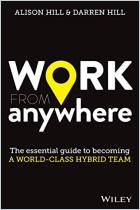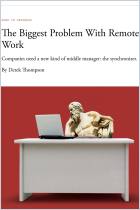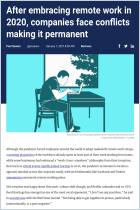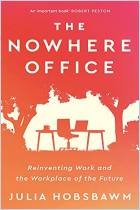Managers mostly resisted the concept of remote work until the pandemic left bosses no choice but to embrace it. Businesses that sent employees home are still grappling with the disruption. Writing for The New Yorker, Cal Newport, author of Deep Work, lays out the issues facing firms in managing the mass migration to – and from – remote work. Despite losses in team cohesion and informal, in-person communication, remote work can yield satisfying results for everyone – if you pay attention to workflow issues.
Technology, especially broadband internet and video streaming, made remote work a realistic possibility, yet business was slow to embrace it.
In 2006, Skype inaugurated the era of videoconferencing. Living and working in less congested, less pricey areas with flexible schedules seemed within reach. Timothy Ferris proposed the 4-Hour Workweek, suggesting workers could negotiate remote arrangements and work from wherever they wanted to live.
But by 2013, executives’ attitudes toward remote workers soured. Yahoo CEO Marissa Mayer ended remote work for her company, claiming a loss of efficiency and quality, and saying that a remote workforce didn’t form a coherent team. Other tech companies followed, implementing incentives to get workers to stay in the office, including free meals, gyms and coffee stands. Remote, “flexible” work became a perk.
In 2018, only 3% of the US workforce worked more than 50% of their schedule remotely. The technology that workplaces now rely on – email, cloud-based apps and cellphones – enabled work to encroach on workers’ non-work time.
When businesses reopen after the pandemic shutdown, not...
Cal Newport, the best-selling author of So Good They Can’t Ignore You, Deep Work: Rules for Focused Success in a Distracted World and Digital Minimalism: Choosing a Focused Life in a Noisy World, teaches computer science at Georgetown University.
















Comment on this summary or 开始讨论